
Coming from a stylised illustration/painting background with an appreciation for retro sci-fi, manga and comic art, I am always looking for a way to achieve those aesthetics through 3D, breaking away from the realism that usually sets the bar for the way we use these software, with a fresh approach that can be in sync with my own personal taste and the way I actually used to paint and sketch.
There are many ways to create and develop toon shaders and a variety of different styles to explore, and sometimes it can appear complex, but in this quick step by step I will take you through a simplified process that I used to create my piece ‘Break Time’.
I will cover setting up the scene, creating toon material and texturing geometries using the Arnold Renderer Toon shading system in order to create a stylised 3D scene. After creating the scene I use Photoshop for post-pro to push the image even further.
DOWNLOAD YOUR RESOURCES For all the assets you need go to https://bit.ly/3D-world-arcturus
01 START WITH A SKETCH
I usually try to begin with some quick thumbnails and sketches in my sketchbook to form some initial ideas and compositions; whether I’m working in 3D software or painting in 2D, it helps me to have a basic idea of what I am hoping to achieve.
02 SET UP THE SCENE
Next, I set up my scene with some 3D-scanned rock geometry using Quixel Bridge. It’s good to mention here that I don’t need the textures and am only using the geometries to mix and create a base for my landscape.
This story is from the {{IssueName}} edition of {{MagazineName}}.
Start your 7-day Magzter GOLD free trial to access thousands of curated premium stories, and 9,000+ magazines and newspapers.
Already a subscriber ? Sign In
This story is from the {{IssueName}} edition of {{MagazineName}}.
Start your 7-day Magzter GOLD free trial to access thousands of curated premium stories, and 9,000+ magazines and newspapers.
Already a subscriber? Sign In
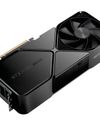
Nvidia GeForce RTX 4080 Super Founders Edition
On the surface, the GeForce RTX 4080 Super is barely any different from the vanilla GeForce RTX 4080 that was launched in 2022.

MCU VFX moments
Pros choose their favourite CG shots from the Marvel Cinematic Universe
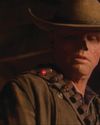
Nosing around on Fallout
We sniff out the story of how FutureWorks brought The Ghoul to life with the creation of his iconic noseless face
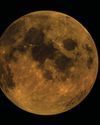
DISCOVER RED GIANT GEO'S HANDY TOOLS
Heather Sterland introduces one of the newest additions to Maxon's suite of Red Giant VFX plugins with an atmospheric lunar creation
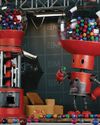
BUILD AND ANIMATE A FUN-FILLED ROBOT
Expand your horizons with Julio Benavides, who reveals his workflow for creating a charming hard-surface character

DESIGN STRIKING SCULPTS AT SPEED
Learn how to build 3D characters that balance visual quality and efficient workflow with pro advice from Oh Holy Mary
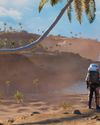
CREATE A CANYON ENVIRONMENT
Build a stunning desert setting with an expert walkthrough from Romain Eboli, who uses high-quality Quixel assets
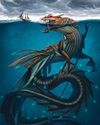
TURN A 2D CONCEPT INTO AN INCREDIBLE 3D-PRINTED FIGURE
Concept artist Emily Chapman shares her process for sculpting, printing and painting an outstanding model to put on display

Goodbye SAIGON
Trevor Hogg gets held captive by multiple versions of Robert Downey Jr.while uncovering the visual effects of HBO's spy series The Sympathizer
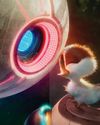
IMPRESSIONISTIC REALISM
Trevor Hogg learns how the artisan aesthetic came to be for The Wild Robot